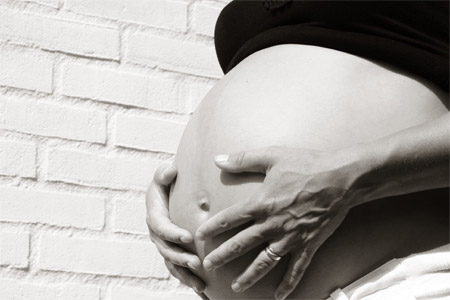Should pregnant women gain weight? Yes, they should and always do. But what about obese pregnant women? Should chubby women also gain pregnancy weight? How can even more weight gain affect their and their baby’s health? Find out the answer in this article.

The healthcare of pregnant patients had been determined by the following set of guidelines issued by the American College of Obstetricians and Gynecologists (ACOG). ACOG had ruled in 1986 that if a pregnant woman gains 16-35 pounds during her pregnancy, then it’s good for the pregnancy and also decrease the probability of the event of fetal death. It didn’t even matter what the initial weight of the woman was; 16-35 pounds gain was considered useful, Healthnewstrack reports.
After that the Institute of Medicine (IOM) had declared the recommendation that obese women should gain around 15 pounds during pregnancy. This had been changed only recently.
Recent research focused on the effectiveness of these guidelines on the maternal-fetal results in obese women. The study consisted of 232 obese pregnant women from a range of hospitals; these women had a body mass index (BMI) of greater than or equal to 30. Among these women, half was used as control group who were treated with the conventional prenatal nutritional guidelines (that is, “eat to appetite”). The remaining women were given well balanced nutritional diet and they were monitored closely; a part of the program included a daily food diary. The results found a mean gain of 31 pounds in the control group and 11 pounds in the study group. Surprisingly, 23 very obese women lost weight.
There were no fetal deaths or growth restricted infants in the study group. The number of babies weighing more than 10 pounds (which is a risky condition for both mother and child) was more in the control group. Also, the obese pregnant women of the study group gained less weight, had fewer cesarean deliveries and turned out to be less prone to develop gestational diabetes. They also maintained less weight after the delivery.
The research found that obese pregnant women should be treated with a healthy and well balanced diet which should be monitored closely without fear of any adverse effects.
The study was led by Ybonne S. Thornton MD, MPH, a clinical professor of obstetrics and gynecology, who is also a board-certified specialist in maternal-fetal medicine at New York Medical College. He had said that obese pregnant women are, by definition, unhealthy. He stated that these women should be treated with a healthy well-balanced diet rather than recommending them to gain weight!
Dr. Thornton was inspired to do this research by her own experiences with being an obese pregnant woman. When she was pregnant, she gained more weight which worsened her struggle with obesity. During her second pregnancy, however, she followed a healthy well-balanced diet that caused her to gain less weight and didn’t have any consequences on her child or herself.
Dr. Thornton further observed this trend in her own clinical practice, which caused her to rethink about the age-long guidelines for weight gain during pregnancy. Her ideas were also supported by the fact that women with gestational diabetes who are always put on an anti-weight-gain diet, never face any ill effects during pregnancy.
Dr. Thornton explained that expecting a round, chubby pregnant woman has become a societal stereotype. Pregnancy opens up doors for women to eat at their heart’s content. She blamed this attitude for contributing to the obesity problem in the United States, where 35% women are obese. African-American women are at most risk, because 80% of them are obese.
Dr. Thornton concluded that it becomes extremely difficult for obese women to return to normal weight after delivery if they gain weight during pregnancy.
Source of the image: sxc.hu.










